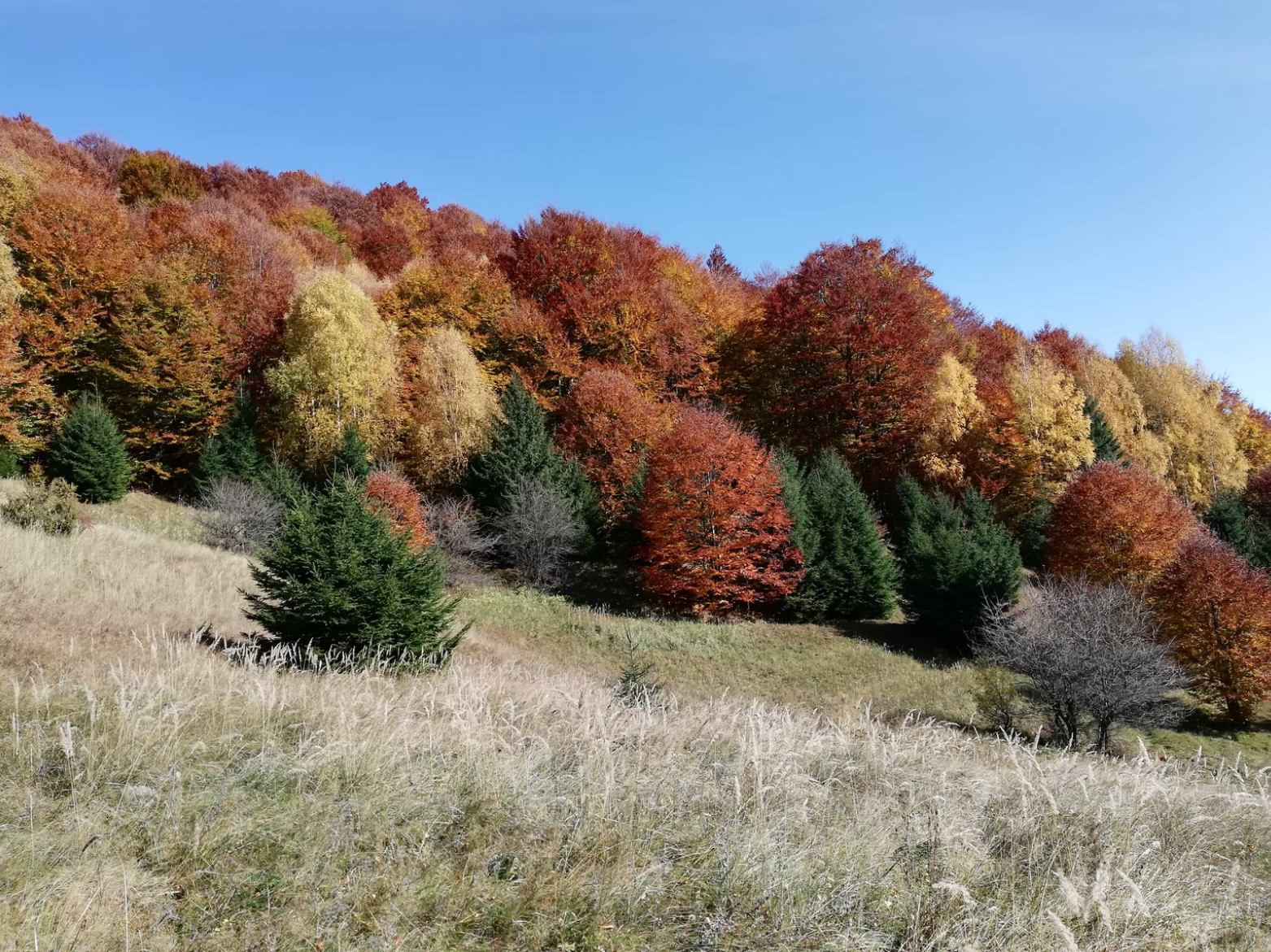The forest is home to life, serves as an energy store and donor and is an important place of strength for many people. Every year on 21 March, at the beginning of spring, we celebrate International Forest Day. Learn more about the forest and its central importance for all life on earth.
The forest is one of the most popular and effective recreational areas where people and nature meet. The forest is a place where people can get away from it all, relax, do sports and recharge their batteries. Proximity to the forest therefore often plays a central role when looking for a place to live. Life without a forest would simply be unimaginable - and that is why we dedicate the International Forest Day to it.

The International Forest Day of Forests as a response
The Day of Forests was deliberately set on 21 March, the official calendar date for the beginning of spring (although it is debated whether this does not already begin on 20 March). On the occasion of the massive destruction of forests since the beginning of industrialisation, a commission of the United Nations (UN) established the International Day of Forests in 1971 as a reaction and to raise awareness of the importance of preserving and protecting the global forest. The beginning of spring was chosen because around this date the first trees and shrubs begin to put on their colourful dress of flowers and leaves.

Preventively and actively raise awareness and protect
The human-induced and accelerated climate change of the last decades increased the awareness and importance of the Forest Day on the international stage. Since 2012, 21 March has been the official United Nations Day of Action and Theme. The motives and goals are clear: forests should be protected worldwide and used sustainably instead of being destroyed. One of the largest organisations actively working to protect the global forest is called PEFC International and is based in Geneva. PEFC certifies the use of forest areas and stands for sustainability, credibility and security of supply.

The global forest is under severe threat
Currently, around 30% of the earth's surface is still covered by forest, but a large part has also fallen victim to human activity. In the countries of the global south in particular, overexploitation, i.e. illegal and unsustainable deforestation, is a drastic problem. Overexploitation ensures that the global forest area continues to shrink every day. Fortunately, the Swiss forest is largely spared illegal logging, but climate change and invasive neobita, i.e. introduced animals, plants and fungi that multiply uncontrollably, are also taking their toll on the Swiss forest. This is confirmed by Matthias Ott, who as a forester has been sustainably caring for and protecting our native forest in Lenzburg for several years. Since the 18th century and until today, the guiding principle of sustainable forest management has been in the DNA of every forester: never use more wood than will grow back.

"The purpose of this day is to highlight to the global community not only the importance of forests as habitats for flora, fauna and people living in forests, but also their economic, health, cultural and social benefits for all humankind." - PEFC International

The forest gives us so much - it's time to give it something back
Oxygen, food, water, carbon sequestration, recreation, fascination - the list is almost endless. Forests are a crucial factor in stabilising the local and global climate. Wood from the forest serves as a sustainable and climate-friendly building material and fuel and reduces the emission of climate-damaging emissions. Sustainable forest management and the use of domestic wood thus make active contributions to climate protection. Researchers from various sectors have been researching the innovative and sustainable industrial use of wood for years.

What makes a forest sustainable
Climate change and its direct consequences are largely of our own making. The consumer society's excessive consumption of energy and resources triggers a chain of effects that lead to higher temperatures, less precipitation, more extreme weather events and increased pest infestations. Climate change is real and now it is necessary to deal with it and adapt the forest to it. This is done, for example, by planting drought- and heat-resistant tree species, through soil protection measures or through an even more balanced mix of deciduous and coniferous trees.

We all benefit from a healthy forest
Apart from the numerous animals and people (even in Switzerland) who live in and from the forest, we all benefit from its versatility. For one group of people, the forest has a particularly important meaning: for the Boy Scouts and Girl Guides. The Pfadi is the place for children and young people to let off steam and experience and get to know nature. The Scout organisation is a worldwide alliance of people who appreciate and love nature. The Scouts teach various valuable skills to young generations, interpersonal skills and also skills in dealing with and in nature. By the way, the two founders of NIKIN, Nicholas and Robin, are also long-time scouts.

How you can support the forest
Planting trees is certainly a good approach, Matthias Ott also says: "Especially when planting is done in places where no more forest would come up without helping along. Or if, as is often the case here, only tree species come of their own accord that unfortunately have a poor chance of survival due to global warming." At NIKIN , we make our small contribution to a greener world and healthy forests by having a tree planted for every single product in our shop, which are then planted precisely in such needy places around the world in cooperation with our long-time partner One Tree Planted. You can donate trees directly on their website. But there are also many opportunities in Switzerland to donate a tree or plant one yourself and thus support the forest. NIKIN organises its own Tree Planting Days in Switzerland several times a year - perhaps soon in your region too. You can keep up to date on when and where you can help via social media. We are looking forward to it!




















